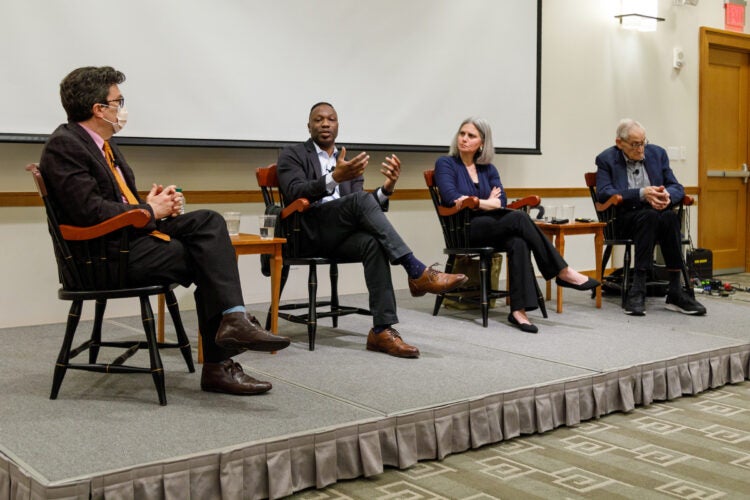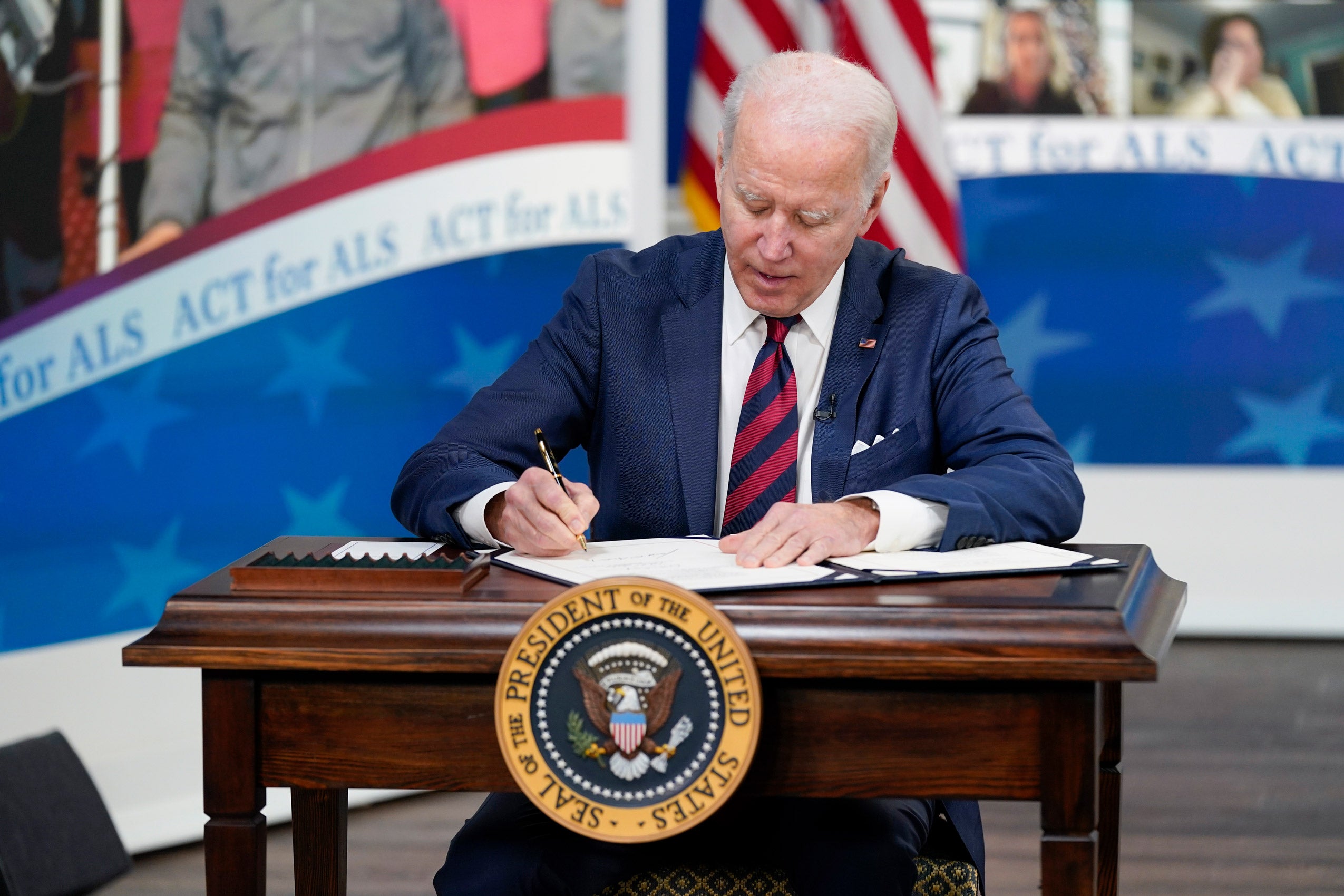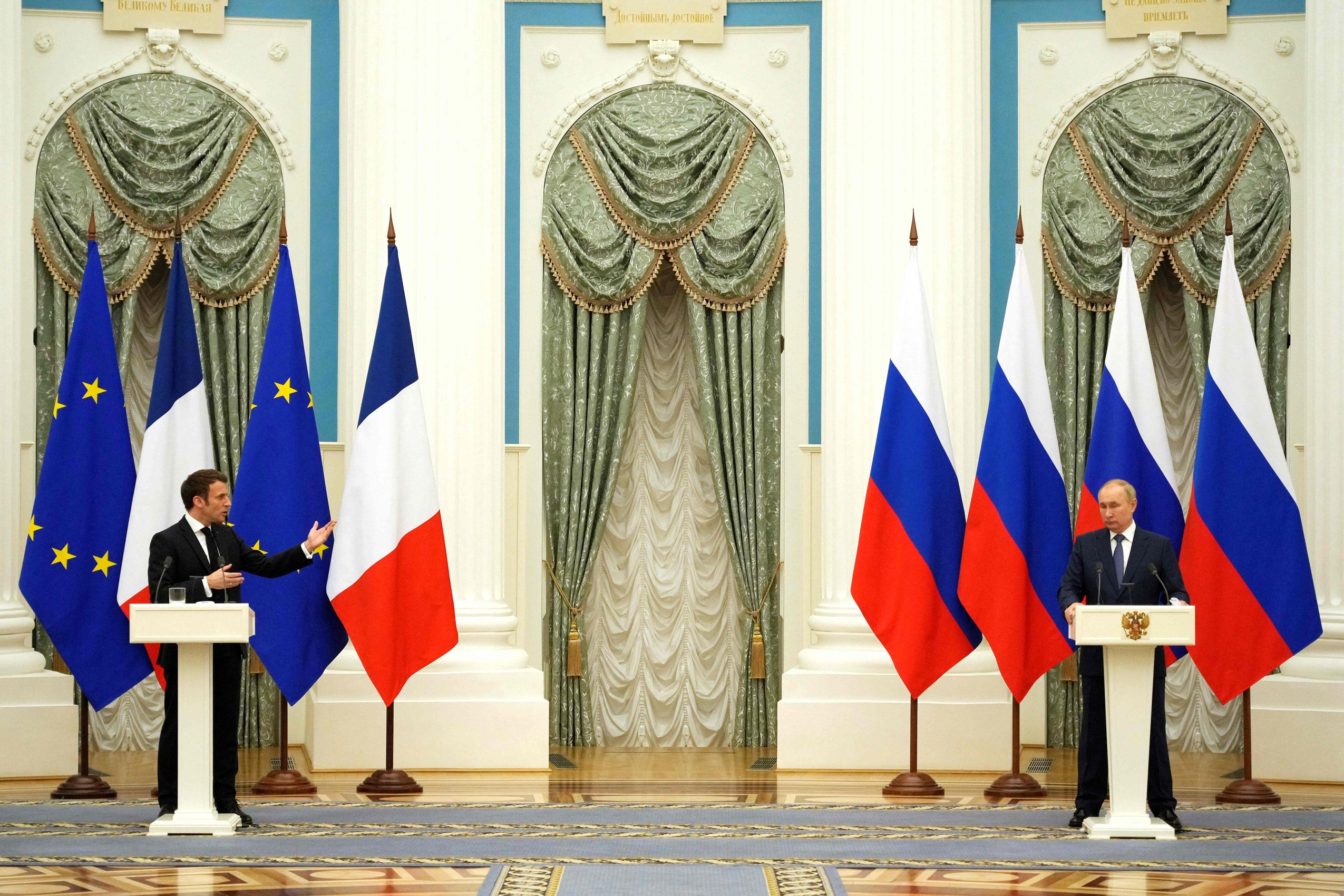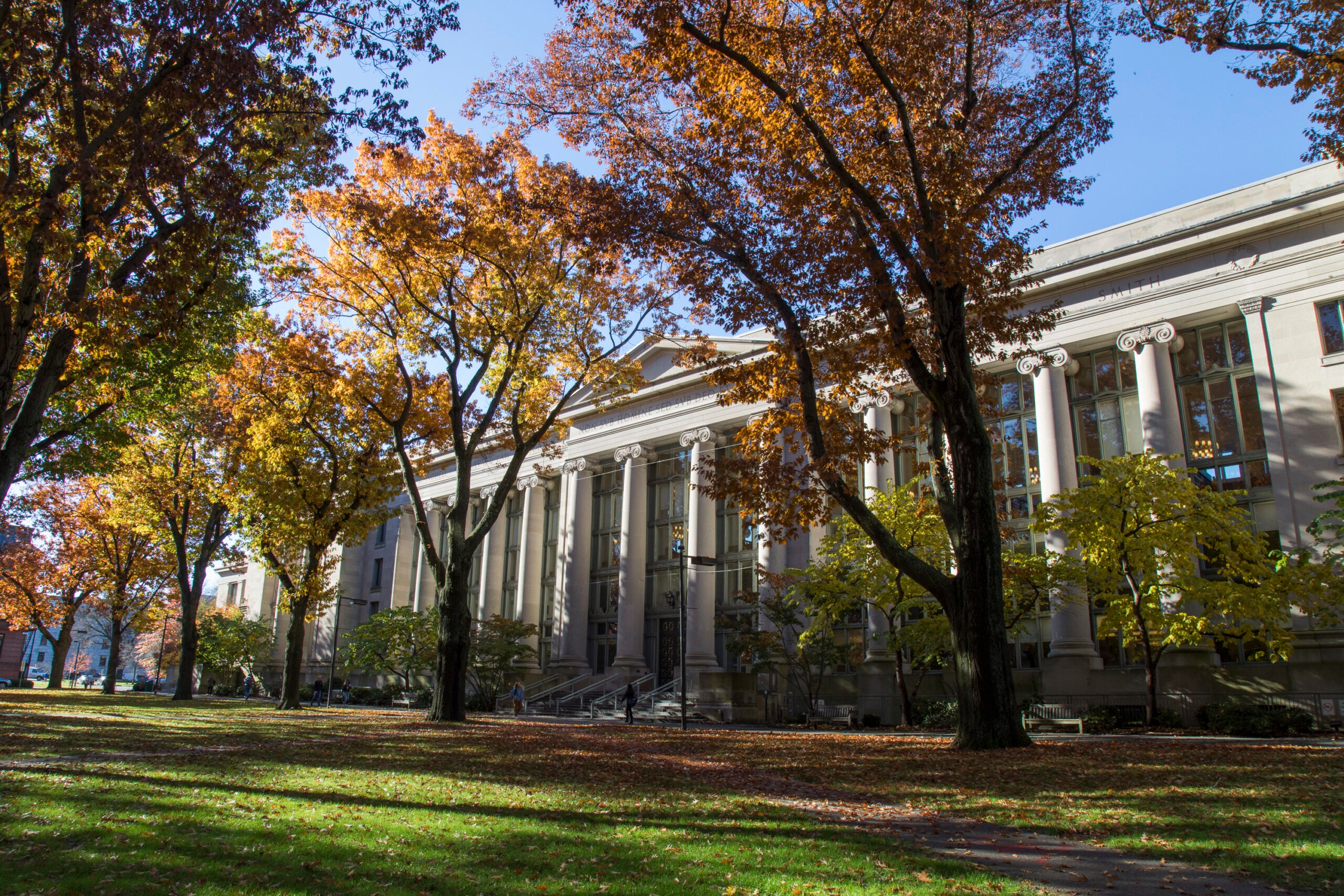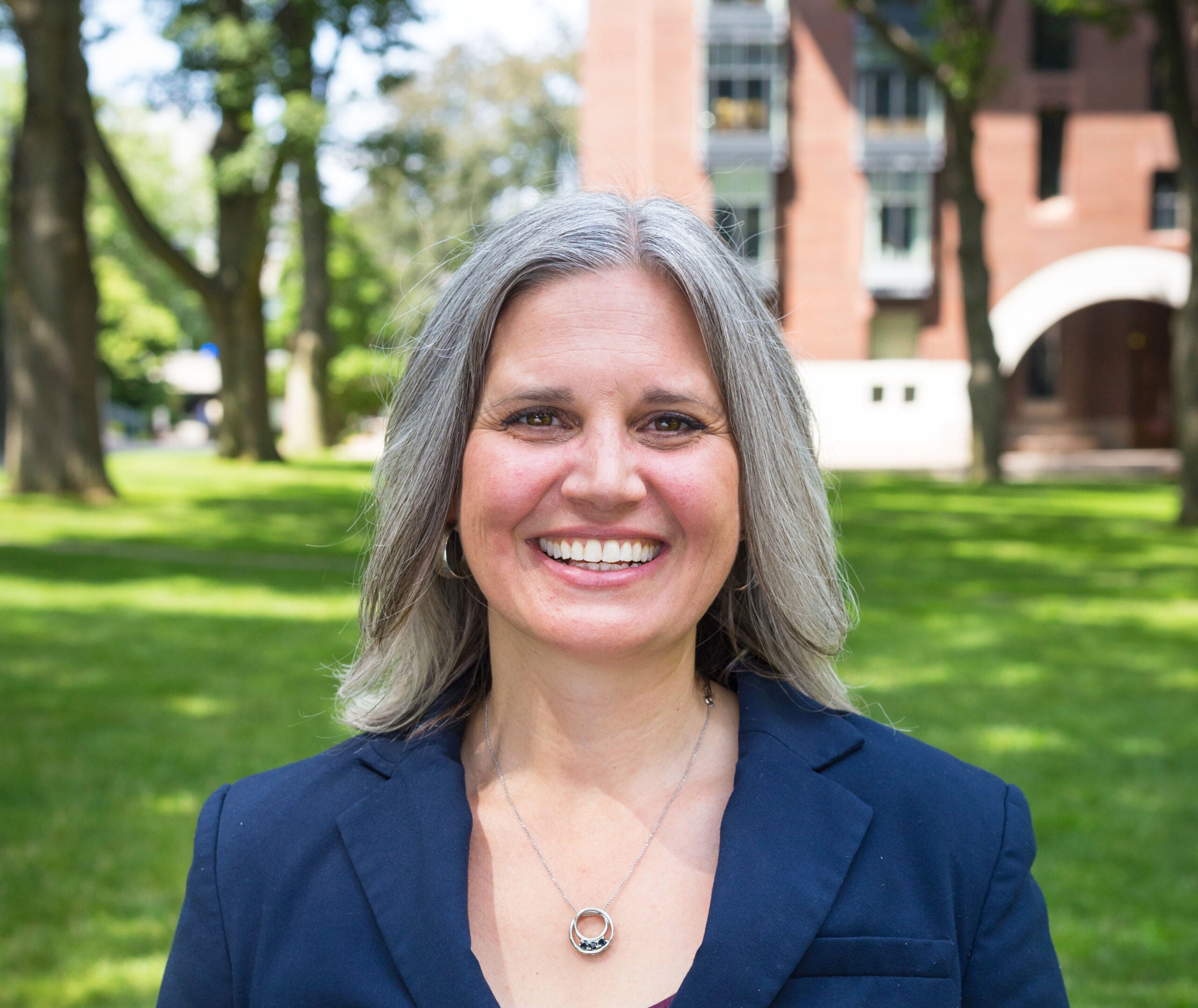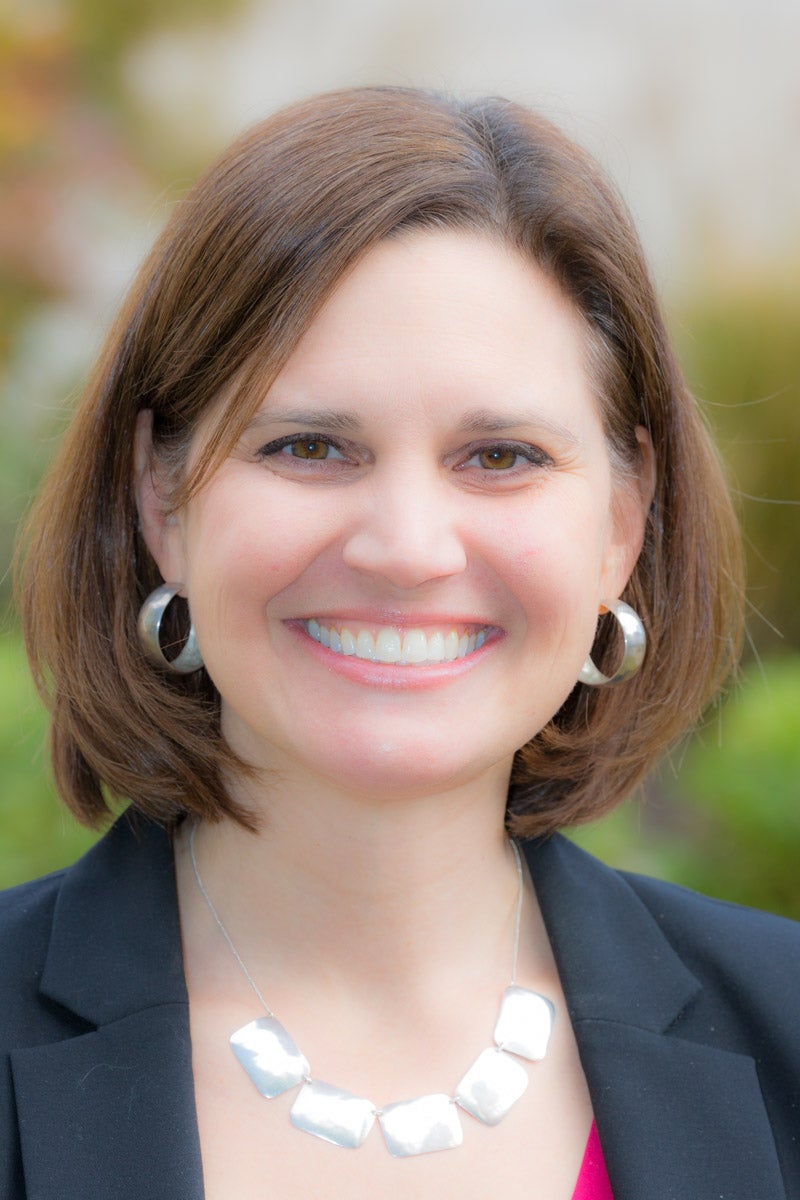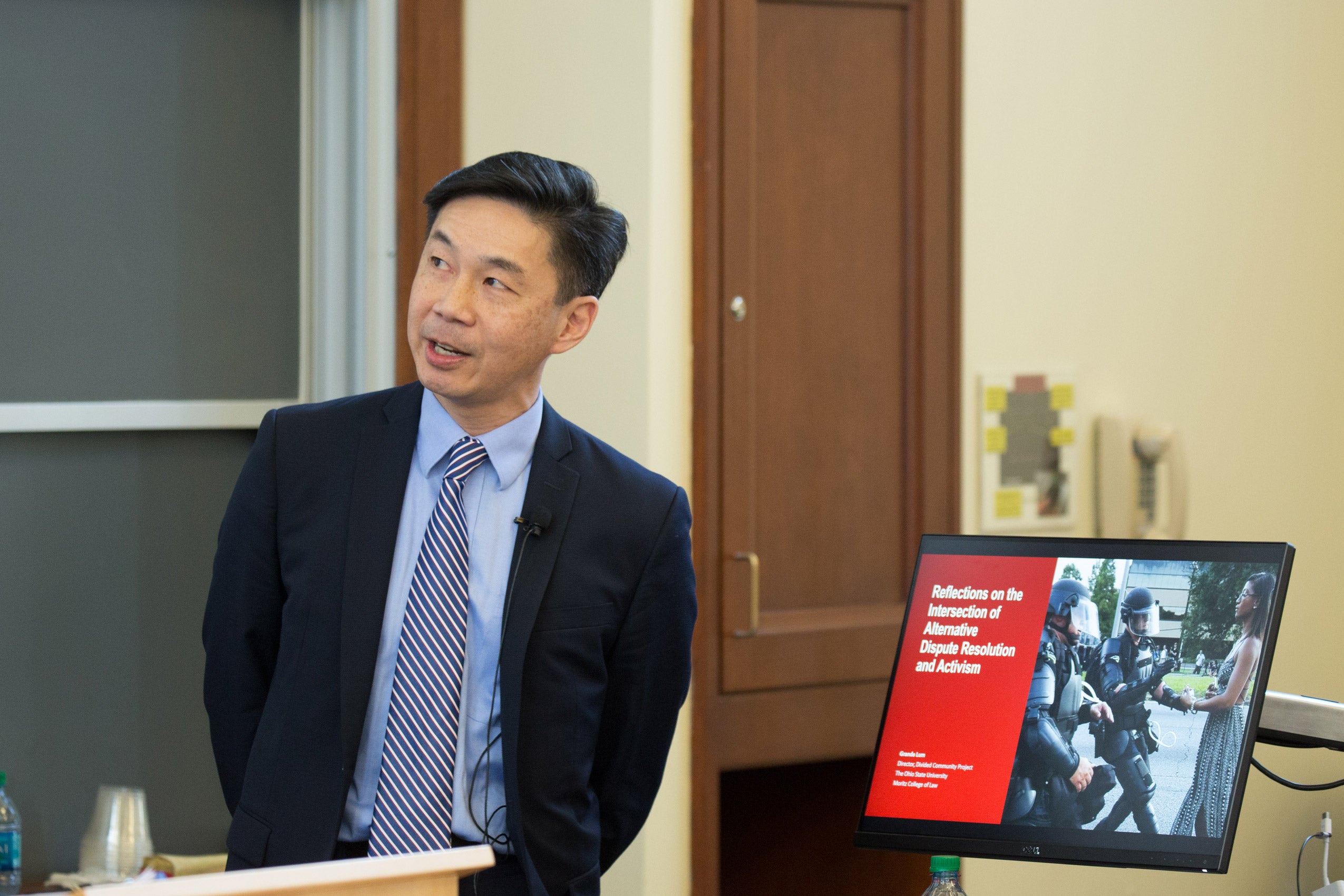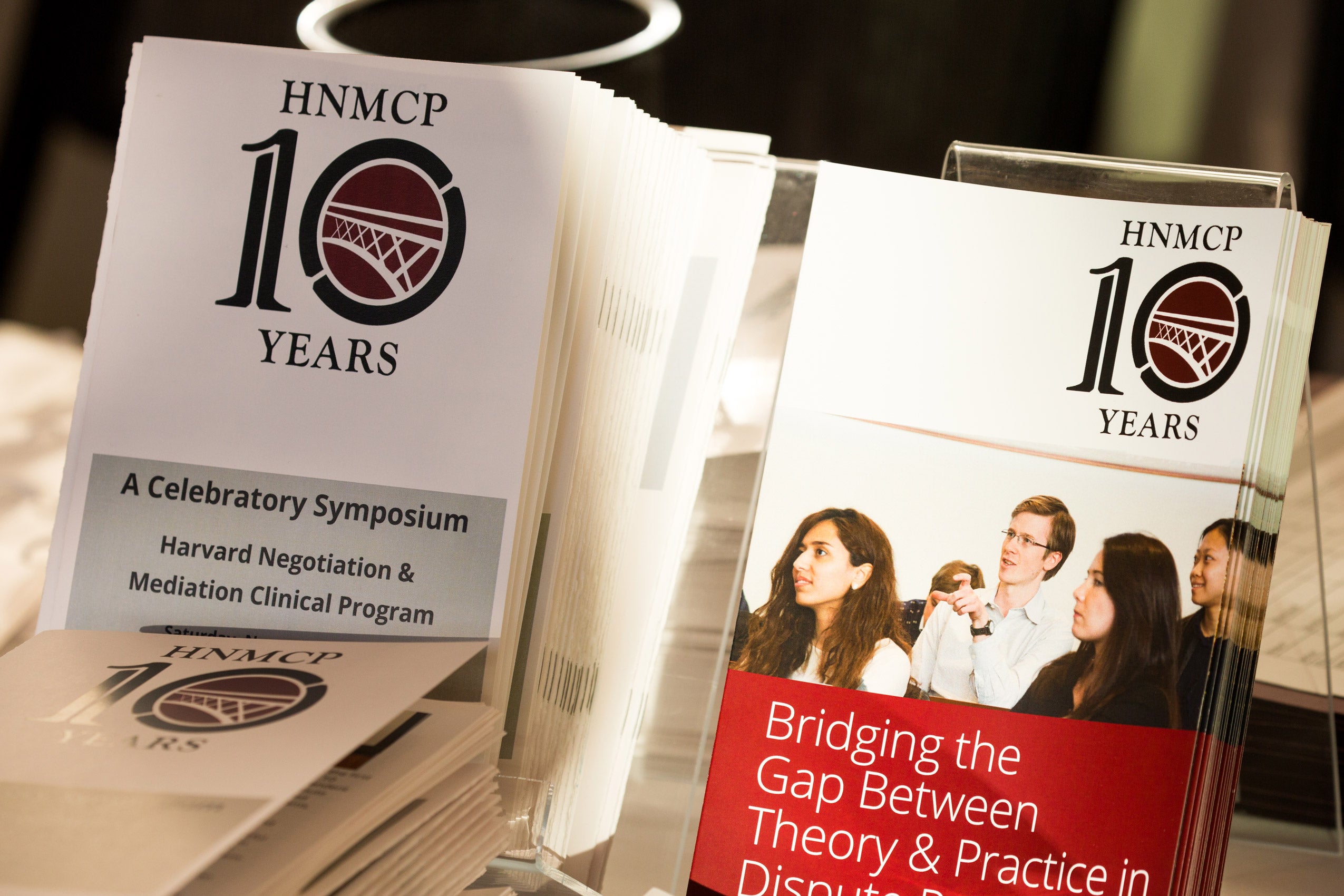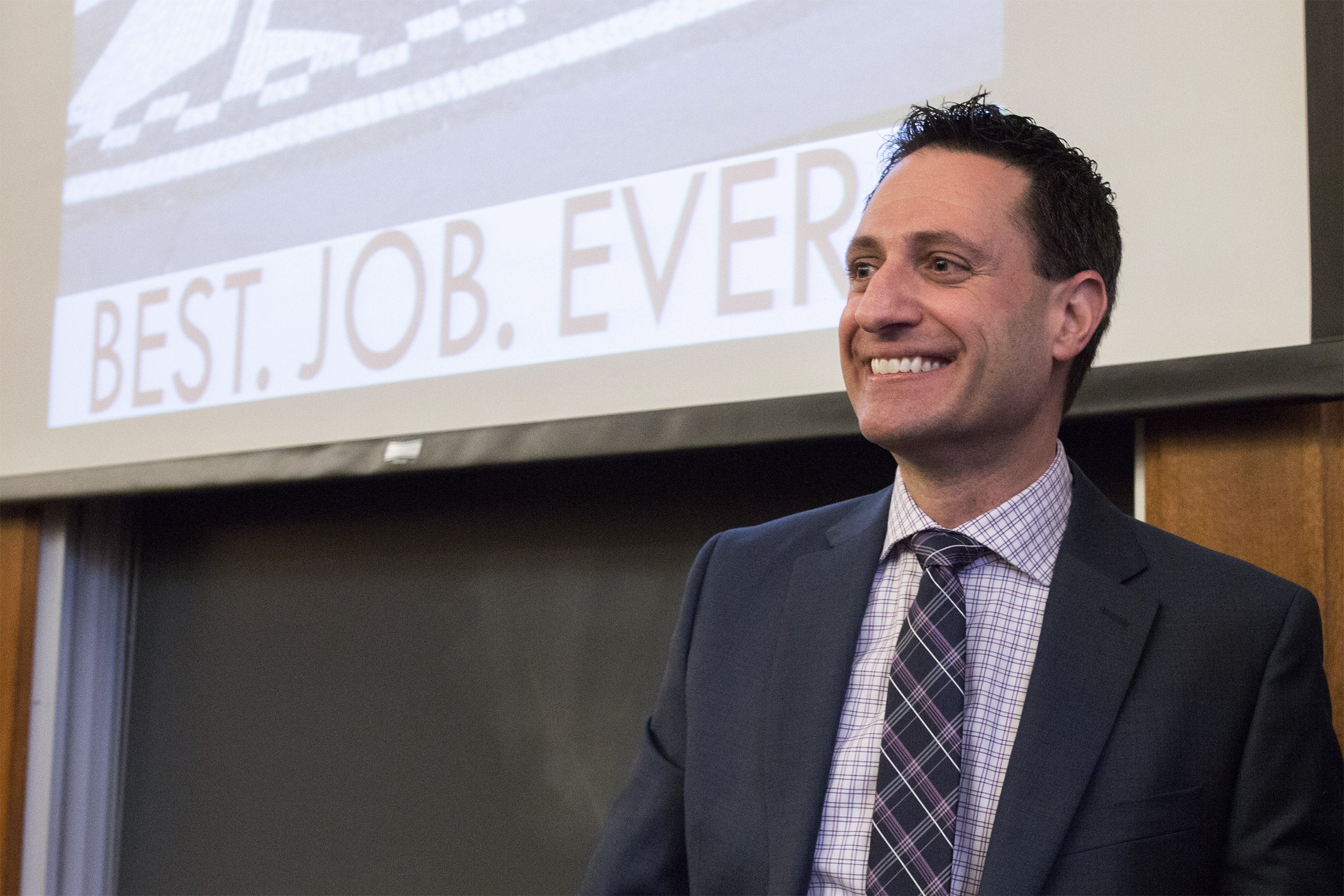People
Rachel Viscomi
-
Students in an advanced negotiation course taught by Professor Rachel Viscomi ’01 and clinical instructor Sara del Nido Budish ’13 used insights from multiparty negotiation to analyze the potential passage of legislation aimed at helping people suffering from ALS — and to better understand how to work as a team.
-
Ukraine in the balance
February 20, 2022
Harvard Law negotiation expert Rachel Viscomi ’01 analyzes the playing field as the U.S. and its allies confront Russian troop buildup on Ukraine’s borders.
-
Members of the Mt. Washington Commission met last week with a mediation team from Harvard to help the commission overcome disagreements that have held up a new master plan for the park. The Harvard Negotiation & Mediation Clinical Program team is made up of three third-year Harvard Law School graduate students and their supervisor, Clinical Law Professor Rachel Viscomi. The team actively engaged with Mt. Washington Commission members and others on Friday, Oct. 29, at an in-person meeting at the Peabody Lodge in Franconia Notch State Park.
-
Commission works with Harvard dispute resolution program
September 28, 2021
Members of the Mt. Washington Commission had a chance at its meeting last Friday to see Harvard Law School third-year student Erin Savoie in action. Two other law students—Seorae Ko and Lowry Yankwich—who work with Erin on a three-member team from the Harvard Negotiation & Mediation Clinical Program were not present.
-
Faculty on the move
September 1, 2021
With the start of the academic year, a look at nine faculty who have joined Harvard Law School, been promoted, or taken on new roles in 2021.
-
Rachel Viscomi named clinical professor of law
August 31, 2021
Rachel A. Viscomi ’01 has been appointed clinical professor of law at Harvard Law School. Viscomi, who was appointed director of the Harvard Negotiation and Mediation Clinical Program (HNMCP) in 2018, was most recently an assistant clinical professor of law.
-
Solving racial disparities in policing
February 24, 2021
It seems there’s no end to them. They are the recent videos and reports of Black and brown people beaten or killed by law enforcement officers, and they have fueled a national outcry over the disproportionate use of excessive, and often lethal, force against people of color, and galvanized demands for police reform...Alexandra Natapoff, Lee S. Kreindler Professor of Law, sees policing as inexorably linked to the country’s criminal justice system and its long ties to racism. “Policing does not stand alone or apart from how we charge people with crimes, or how we convict them, or how we treat them once they’ve been convicted,” she said. “That entire bundle of official practices is a central part of how we govern, and in particular, how we have historically governed Black people and other people of color, and economically and socially disadvantaged populations.” ... Retired U.S. Judge Nancy Gertner also notes the need to reform federal sentencing guidelines, arguing that all too often they have been proven to be biased and to result in packing the nation’s jails and prisons... “The disparity in the treatment of crack and cocaine really was backed up by anecdote and stereotype, not by data,” said Gertner, a lecturer at HLS. “There was no data suggesting that crack was infinitely more dangerous than cocaine. It was the young Black predator narrative.” ... At Harvard Law School, students have been studying how an alternate 911-response team might function in Boston. “We were trying to move from thinking about a 911-response system as an opportunity to intervene in an acute moment, to thinking about what it would look like to have a system that is trying to help reweave some of the threads of community, a system that is more focused on healing than just on stopping harm” said HLS Professor Rachel Viscomi, who directs the Harvard Negotiation and Mediation Clinical Program and oversaw the research.
-
Rachel A. Viscomi ’01 has been appointed assistant clinical professor of law at Harvard Law School and named director of the Harvard Negotiation and Mediation Clinical Program. She was formerly a lecturer on law at HLS and the acting director of HNMCP.
-
Grande Lum ’91, former director of the U.S. Justice Department’s Community Relations Service (CRS), was on the Harvard Law campus in February to deliver the keynote address of the Harvard Negotiation Law Review’s 22nd Annual Symposium, “Reflections on the Intersection of Alternative Dispute Resolution and Activism.”
-
Negotiation and Mediation Clinical Program celebrates 10th anniversary and growing impact
December 14, 2016
In November, the Harvard Negotiation and Mediation Clinical Program celebrated its 10th anniversary, marking its evolution into a robust program of global clinical work in dispute systems design, innovative pedagogy around teamwork, and expanded course offerings in multiparty negotiation, group decision-making, teams and facilitation.
-
Political dialogue in polarizing times
October 4, 2016
Harvard Negotiation & Mediation Clinical Program Director and Clinical Professor Robert Bordone and Assistant Director and Lecturer Rachel Viscomi offer advice on how to talk about the election and other contentious topics without alienating family, friends and your social network.
-
Boston officers say no to mediation program
August 16, 2016
Nearly a year after the Boston Police Department launched a mediation program to reduce a backlog of minor grievances against officers, not a single complaint has been mediated because the officers involved have refused to participate. The program, which began in September, was billed as a way to quickly resolve routine complaints such as allegations of disrespectful treatment, which would allow the department to spend more time investigating more serious allegations of misconduct or use of excessive force. But for a complaint to be mediated, both parties must agree to participate. Under the program, managed by the Harvard Mediation Program at Harvard Law School, officers are asked first if they want to participate. If they refuse, the party who filed the complaint is not offered the option of mediation...It’s not unusual that officers are reluctant, officials say. “Officer resistance” is the primary reason similar programs fail to catch on during the first year, said Rachel A. Viscomi, assistant director of the mediation program. “It’s not a process [officers are] familiar with,” she said. “It’s a challenge anytime you’re starting something new, especially when it’s so different from what they’re used to.” “It is disappointing, but not out of the norm by any stretch,” Viscomi said.
-
Boston police aim to lower backlog of routine complaints
January 25, 2016
The Boston Police Department has launched a mediation program aimed at reducing a backlog of routine complaints against officers — an idea first suggested a decade ago. Even though the number of complaints dropped in 2014, the time it takes to resolve the cases has frustrated both citizens and the officers who live in the shadow of possible action pending against them. Police officials hope that the program, which will be managed by the Harvard Mediation Program at Harvard Law School, will help clear less serious complaints quickly...“The goal is to ensure that citizens feel comfortable,” said Rachel A. Viscomi, the Harvard program’s assistant director. “The idea is to level the playing field.”
-
Boston leaders and community activists have long called for more and better ways to handle civilian complaints of police misconduct. The news that the Boston Police Department is developing a third-party mediation program in conjunction with Harvard Law School shows that the department is serious about building better bridges with the community...But other details of the program are still being tweaked...For example, the police department says it won’t force any officer to attend a mediation session. Rachel Viscomi, who is assistant director at the Harvard Negotiation & Mediation Clinical Program and who worked with the Boston police to develop the initiative, agrees. “Mediation should always be voluntary."
-
In an upcoming initiative, the Harvard Mediation Program at Harvard Law School would help mediate complaints levied by civilians against Boston Police Department officers, according to Rachel A. Viscomi, the assistant director of the Harvard Negotiation & Mediation Clinical Program at the Law School...“Mediation provides an opportunity to engage and potentially repair individual instances of hurt and misunderstanding, helping to strengthen connection and understanding between police officers and the communities they serve,” Viscomi wrote in an email.
-
Sudbury seeks lesson on civility in meetings
May 4, 2015
What should have been a routine meeting last spring to choose the next chairman of the Sudbury Board of Selectmen devolved into a heated debate of personal attacks that left many residents shaking their heads in disgust...Recently, a group of local clergy members stepped in, enlisting the help of the Harvard Negotiation & Mediation Clinical Program at Harvard Law School to propose ways to move toward more civil discourse. The results of the “Sudbury Listening Project” will be presented at 3 p.m. Sunday at the Grange Hall in Sudbury...Harvard law students Seanan Fong and Jiayun Ho spent two months interviewing members of the community, holding focus groups, and conducting an online survey that was completed by 191 people. “The whole purpose was to listen, not to come in and say, ‘This is what’s wrong with your town,’ but to understand what people are seeing and hearing and feeling,” said Rachel Viscomi, assistant director of the program, which connects students from the law school with organizations that would benefit from strategic negotiation and conflict management advice.
-
After years of false starts, the Boston Police Department is nearing a deal with its three unions and Harvard Law School to set up a simpler, speedier system for resolving many of the civilian complaints lodged against officers, police and Harvard officials say. Under the system, mediators from the Harvard Negotiation & Mediation Clinical Program at Harvard Law School would handle dozens of the more moderate disputes that clog up the department’s Internal Affairs Division, to the frustration of plaintiffs...Rachel A. Viscomi, the Harvard program’s assistant director, said she expected to complete an agreement once police unions approve the policy. She said mediators would be drawn from a pool of Harvard Law School students and local residents trained in dispute resolution and provided by the program at no charge. “It doesn’t always mean they’ll agree or want to resolve it right there,” she said, “but the opportunity for greater connection is very important.”
